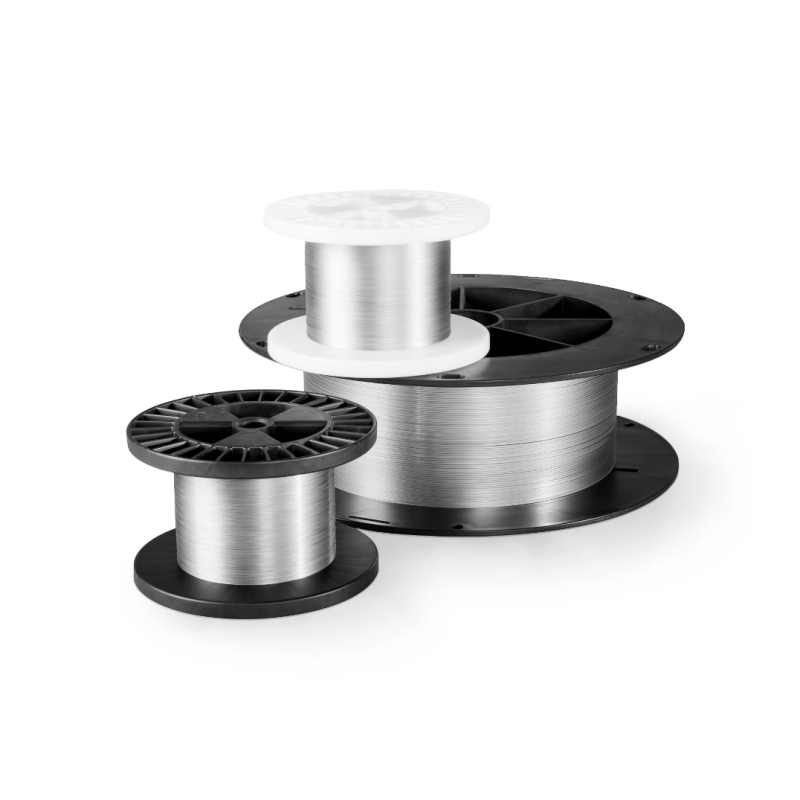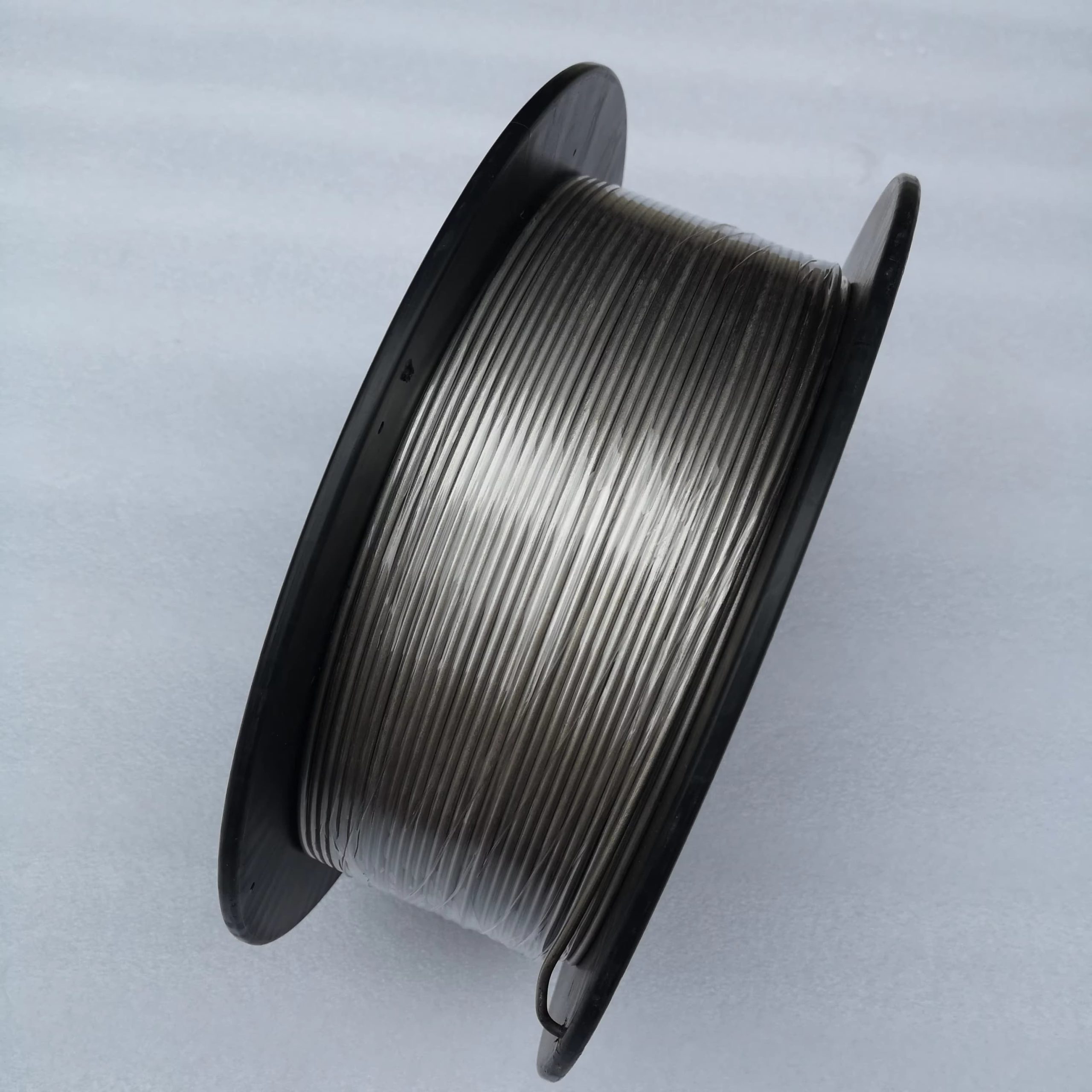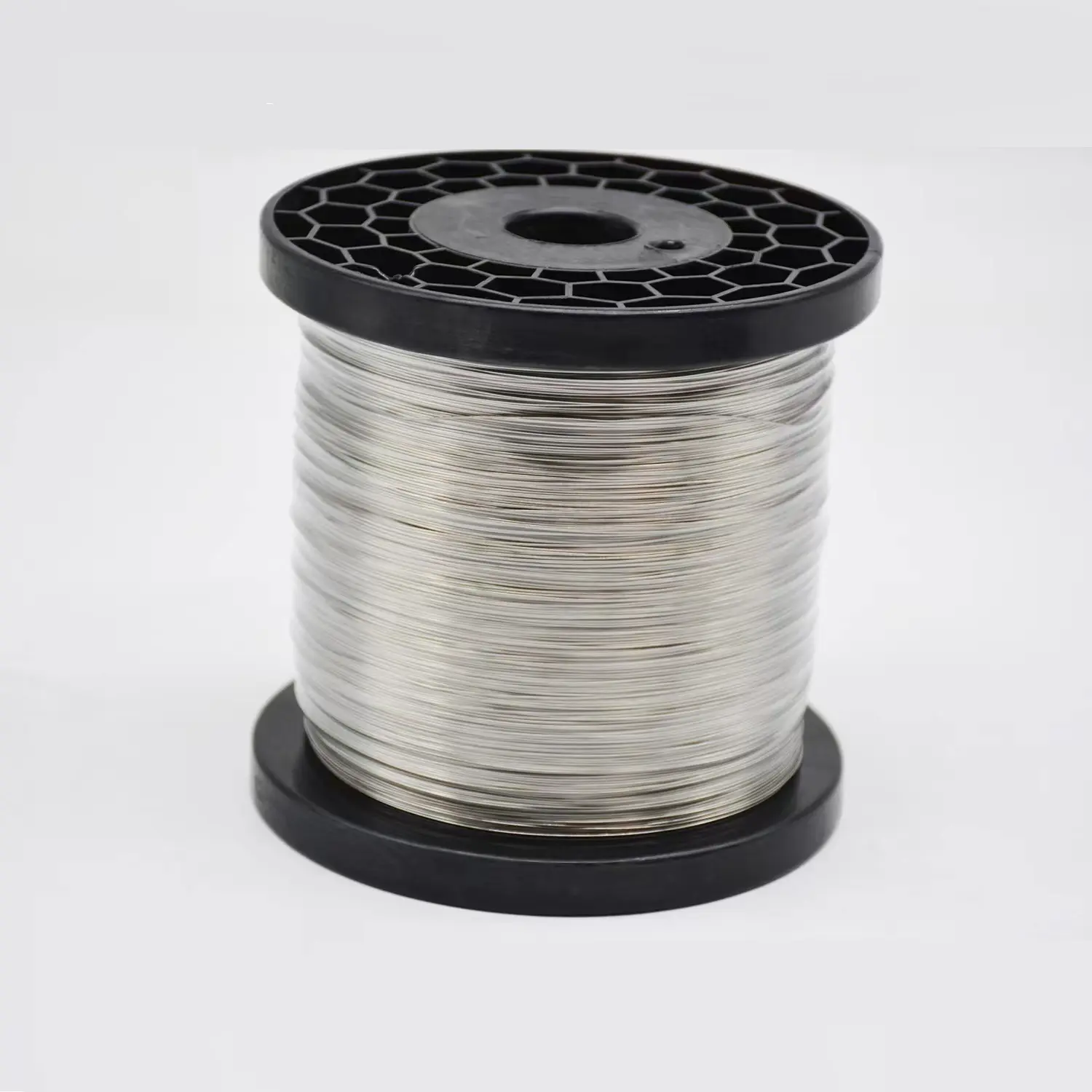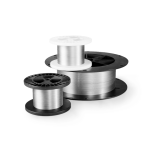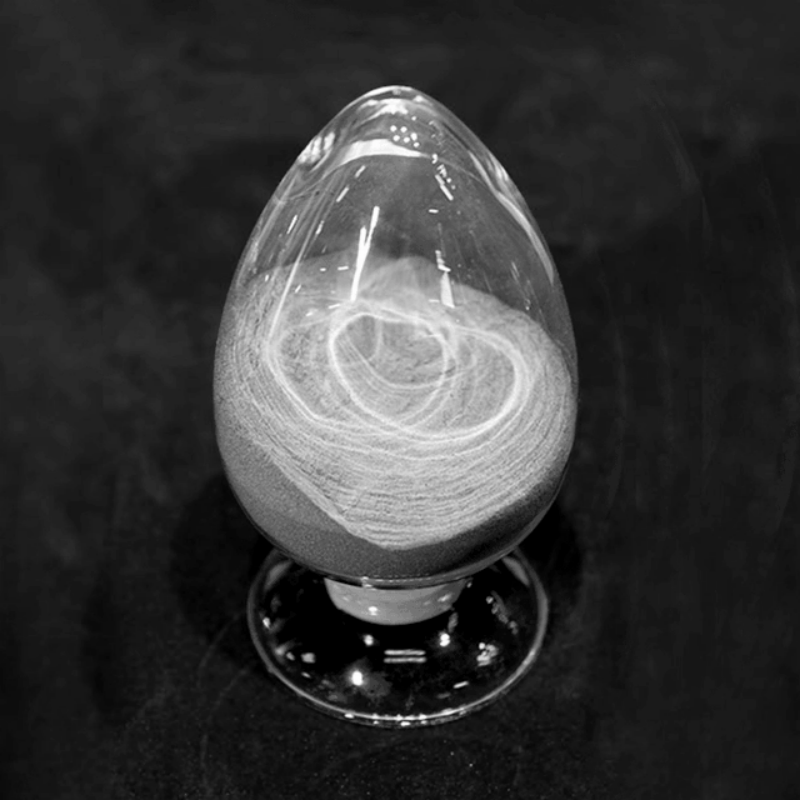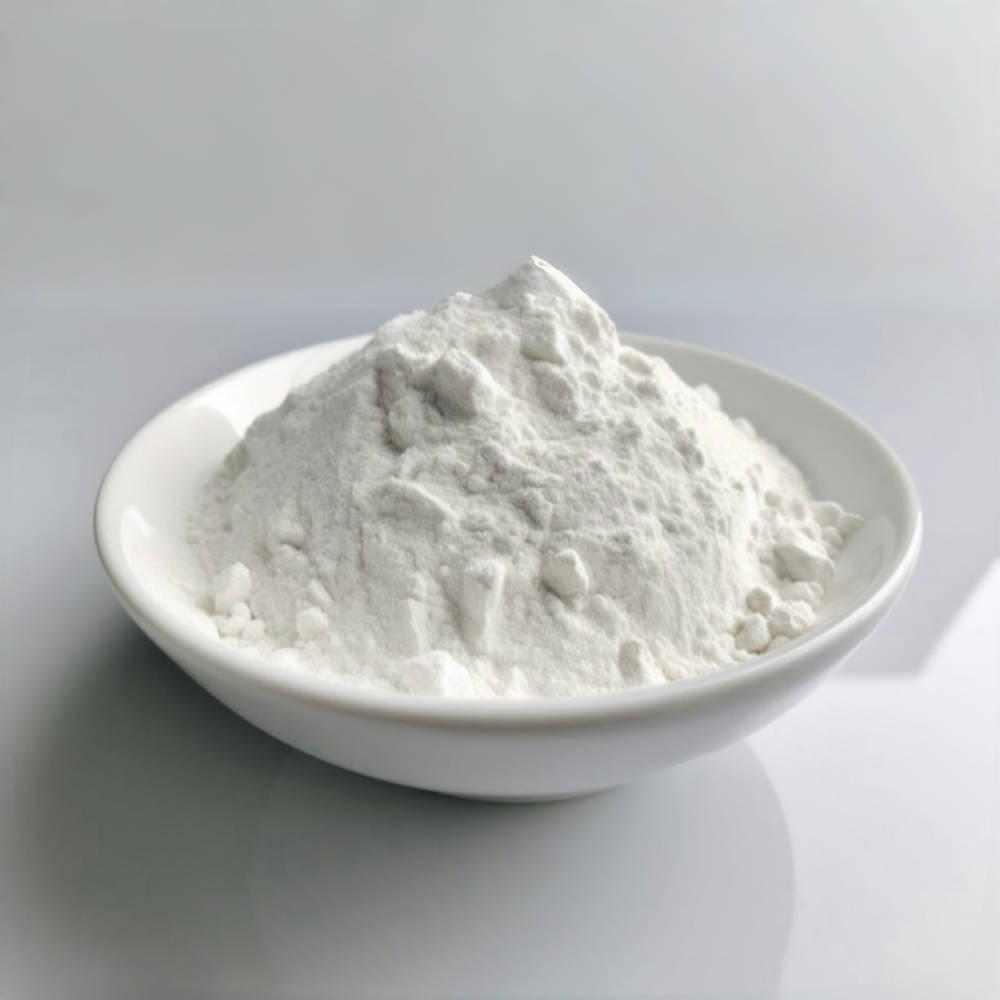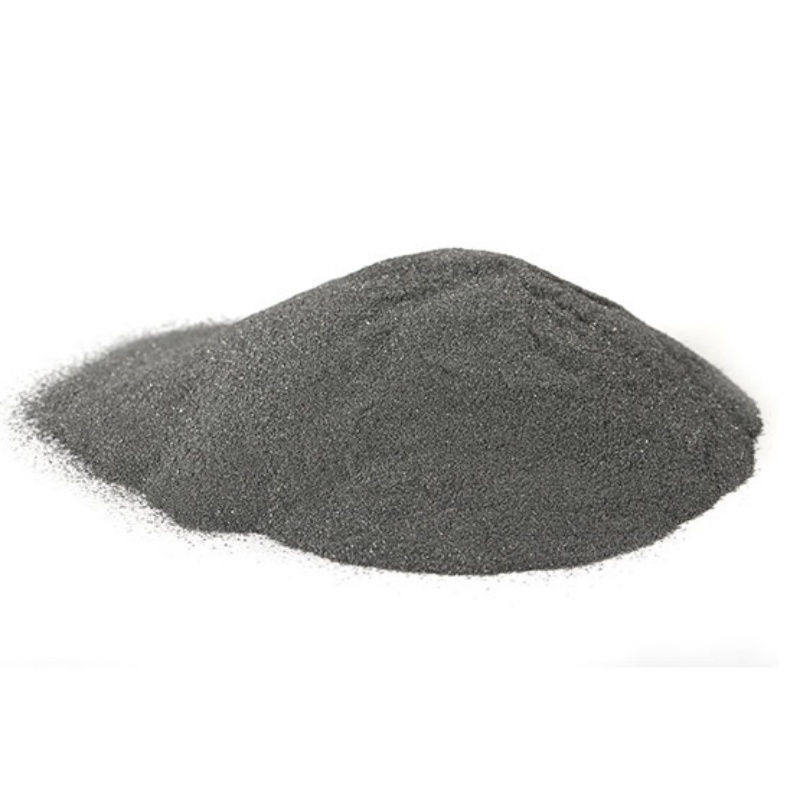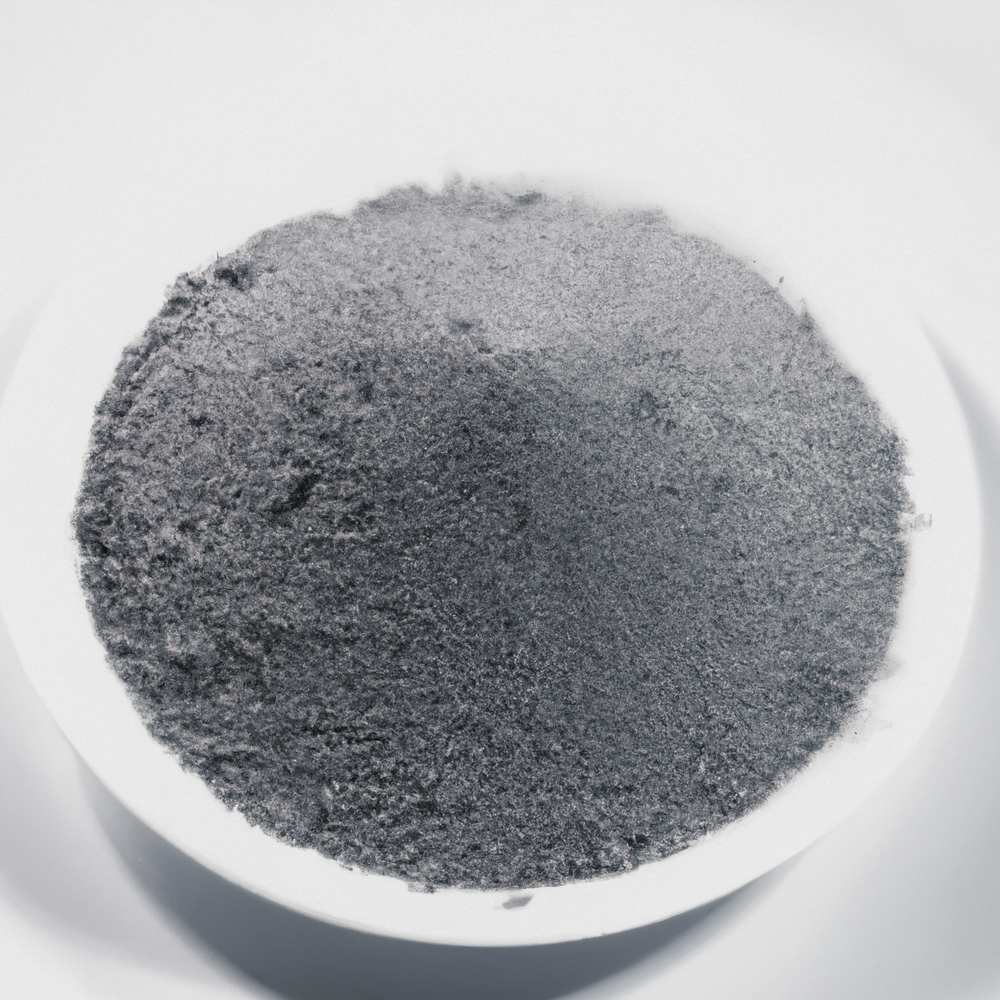Product Overview
Titanium wire is made from high-purity titanium metal and offers excellent mechanical properties and corrosion resistance. With a density of 4.506 g/cm³, a melting point of 1668°C, and a boiling point of 3287°C, titanium wire is highly suitable for applications that require high strength, lightweight materials, and resistance to high temperatures. It is widely used in industries such as aerospace, military, and chemical processing.
Key Features
- High Purity: Made from titanium with 4N-5N purity, ensuring enhanced strength and ductility.
- Corrosion Resistance: Titanium wire is highly resistant to corrosion, capable of withstanding atmospheric, seawater, and various chemical mediums.
- Good Machinability: The wire can be customized based on customer requirements and offers good machinability.
- High-Temperature Resistance: Titanium's excellent high-temperature resistance, with a high melting and boiling point, makes it ideal for applications in extreme heat environments.
- Lightweight and High Strength: With a high strength-to-weight ratio, titanium wire is an ideal choice for aerospace and other industries requiring strong yet lightweight materials.
Applications
- Aerospace: Titanium wire is used in critical components of aircraft engines, rockets, and missiles, providing lightweight and high-strength material support.
- Military: Titanium wire is used to manufacture military equipment and weapon parts, offering excellent performance in high-temperature and corrosive environments.
- Chemical Industry: Titanium wire is used in chemical processing equipment and pipelines, especially in environments requiring resistance to corrosion and high temperatures.
- Medical: Titanium wire is commonly used in medical devices and implants, offering excellent biocompatibility.
- Electronics and Precision Equipment: Titanium wire is widely used in electronics manufacturing, precision equipment, and high-end industrial applications.
| Element | Measured Value | Standard Value | Unit | Element | Measured Value | Standard Value | Unit | Element | Measured Value | Standard Value | Unit |
| Li | <0.005 | ppm | Zn | <1 | ppm | Pb | <1 | ppm | |||
| B | Ga | Bi | |||||||||
| F | Ge | Y | |||||||||
| Na | As | <1 | ppm | Th | |||||||
| Mg | <1 | ppm | Se | Er | |||||||
| Al | <2 | ppm | Zr | Ru | |||||||
| Si | <5 | ppm | Nb | Rh | |||||||
| P | Mo | <1 | ppm | Os | |||||||
| Cl | 0.06 | ppm | Pd | <5 | ppm | Cd | <1 | ppm | |||
| K | ppm | Ag | <0.02 | ppm | In | ||||||
| Ca | <1 | ppm | Sn | <5 | ppm | ||||||
| Ti | Matrix | wt% | Sb | <5 | ppm | ||||||
| V | Ba | <1 | ppm | ||||||||
| Cr | 2.7 | ppm | Hf | ||||||||
| Mn | <1 | ppm | Ta | C | |||||||
| Fe | <2 | ppm | W | S | |||||||
| Co | <1 | ppm | Pt | O | |||||||
| Ni | <2 | ppm | Au | N | |||||||
| Cu | <2 | ppm | Hg | H |
 new material
new material

